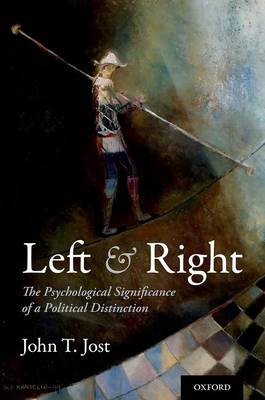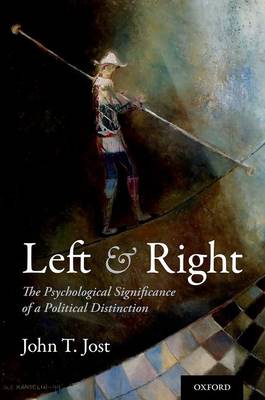
- Afhalen na 1 uur in een winkel met voorraad
- Gratis thuislevering in België vanaf € 30
- Ruim aanbod met 7 miljoen producten
- Afhalen na 1 uur in een winkel met voorraad
- Gratis thuislevering in België vanaf € 30
- Ruim aanbod met 7 miljoen producten
Left and Right
The Psychological Significance of a Political Distinction
John T Jost
Paperback | Engels
€ 120,95
+ 241 punten
Omschrijving
This book brings together for the first time an updated, revised collection of influential essays and articles that capture some of the most exciting scientific and scholarly contributions to the topic of political ideology. John Jost tackles fundamental questions about how psychology, neuroscience, and societal factors impact political attitudes and group divisions. In what sense, if any, are ordinary citizens "ideological"? Is it useful to locate political attitudes on a single dimension of representation? Are there meaningful differences in the beliefs, opinions, and values of leftists and rights-or liberals and conservatives? How are personality traits related to ideological preferences? What situational or contextual factors contribute to liberal and conservative shifts in the general population? What are the implications of ideological polarization for the future of democracy? Drawing on Max Weber's concept of elective affinities, one of the world's leading political psychologists discusses the myriad ways in people choose ideas and ideas choose people.
Specificaties
Betrokkenen
- Auteur(s):
- Uitgeverij:
Inhoud
- Aantal bladzijden:
- 416
- Taal:
- Engels
Eigenschappen
- Productcode (EAN):
- 9780190858339
- Verschijningsdatum:
- 11/08/2021
- Uitvoering:
- Paperback
- Formaat:
- Trade paperback (VS)
- Afmetingen:
- 156 mm x 236 mm
- Gewicht:
- 598 g

Alleen bij Standaard Boekhandel
+ 241 punten op je klantenkaart van Standaard Boekhandel
Beoordelingen
We publiceren alleen reviews die voldoen aan de voorwaarden voor reviews. Bekijk onze voorwaarden voor reviews.










